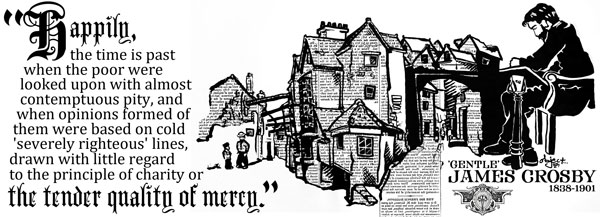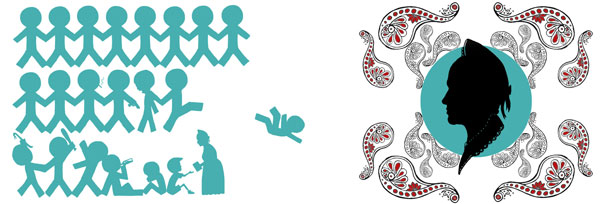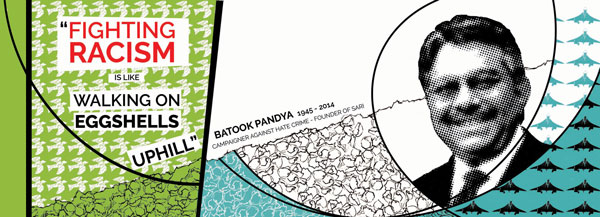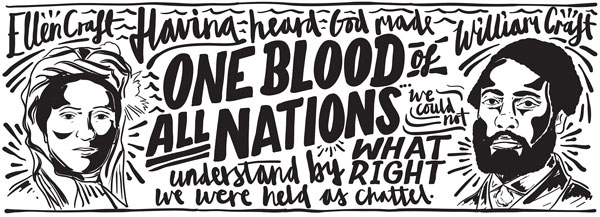
James Crosby (1838-1901): Investigative journalist, slum housing campaigner. Artist: object…
What can history teach us about how we got here and where we go next? The Journey to Justice project aims to find out by offering fresh perspectives on civil rights struggles.
A project new to Bristol brings to life civil rights stories with exhibitions, art, music, talks and workshops across the city, will give scope to explore these questions and others.
Journey to Justice brings a travelling exhibition programme on the American civil rights movement to cities across the UK, telling stories of the lesser-known voices who made a difference in the fight for black liberation in America.
It’s in Bristol for most of October – and will be accompanied throughout the month by more than two dozen events telling local stories. The exhibition programme has been created by a huge group of volunteers from the UK&US including researchers, historians, teachers, curators, artists, audio/visuals specialists, copyright researchers & more.
Different approach
UWE professor and exhibition programme co-ordinator, Dr Madge Dresser, says this is a different approach to telling a famous story. It’s a respectful, grassroots, community effort that also tells Bristolian stories, rather than an exclusive focus on Martin Luther King and the American civil rights movement which is often taught in a way which makes it “dead and irrelevant to British kids”.

Mary Carpenter (1807-1877): Unitarian, champion of destitute children. Artist: Brook Tate
Dissenting voices
The wide-ranging programme of mostly free events that accompanies Journey to Justice takes a deeper look at the histories and activism of marginalised groups, including LGBT+ communities, working-class women and people with disabilities. It will also explore current activism and cultural perspectives, from protest strategies and the experiences of Jewish refugees, to a history of the Knowle West community and the voices of Somali Bristolians across generations. There will be talks and lectures, film and art performances, workshops, walking tours, debates and a march to commemorate Martin Luther King.

Batook Pandya (1945-2014): Race equality campaigner, founder of SARI. Artist: Micha Libert
’Sense of independence’
Learning from one another doesn’t have to stop at bridging the generation gap. The variety of events on the Journey to Justice programme aims to reflect the complexity of our city’s history and communities and connect them.
“[Bristol] always had a sense of independence from London,” says Dresser, “a pride in its distinctive characteristics.” She describes “quite traditionalist” elements that take a conservative approach to debates about the city’s past, while also pointing to the city’s long history of radical politics, activism and religious non-conformists “questioning the established Christian state”, as well as migration and evolving ethnic, cultural and religious communities.
An obvious flashpoint for this is the heated debate over how the city remembers slave trader and philanthropist, Edward Colston, who did a lot of good, while heading the effort to enslave hundreds of thousands of African people for profit.
“You’ve got a conundrum here,” Dresser reflects. “How do you reconcile not honouring someone who enslaved a lot of people and he was a philanthropist? I think it’s the contradictions in Colston that are very interesting.”
Colston is “trotted out at particular moments in history to serve the contemporary political preoccupations of the elite”, Dresser feels. She adds that a truly productive way for Bristol to acknowledge the history would be to add the context of slavery to existing statues and plaques, to keep debate alive.
“There is tradition, commemorations and ideas that we don’t want to erase or throw away,” she says, “but we can reconfigure and reflect on [them] more critically.”

Ellen (1826-1891) and William Craft (1824-1900): Anti-slavery campaigners. Artist: Katraz
A rounded view
Seeking a rounded view of people’s motivations and complexities reflects the ethos of the project, which Dresser says aims to build bridges and bring together people in different circles; from trade unionists to Somali refugees. What’s important, she argues, is that people – even those who are not natural bedfellows – share values and are willing to listen to one another.
Journey to Justice’s organisers are keen to see a legacy and pass on a mantle of co-operation and activism that continues beyond the project. By bringing social justice history to life to illuminate the present and bringing those from different backgrounds and generations together, they hope to spark ideas and connections that fuel social justice campaigning. “Connections will happen that we can’t envisage,” Dresser hopes.
Journey to Justice runs from 4–29 October.
For more information visit www.journeytojustice.org.uk/bristol
This essay was adapted from an article by Koel Mukherjee and Lorna Stephenson. The full article appeared in the Bristol Cable on 11th October 2017.
